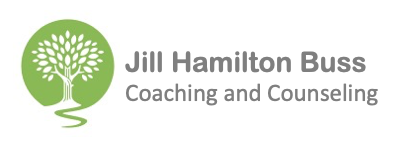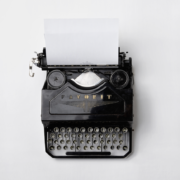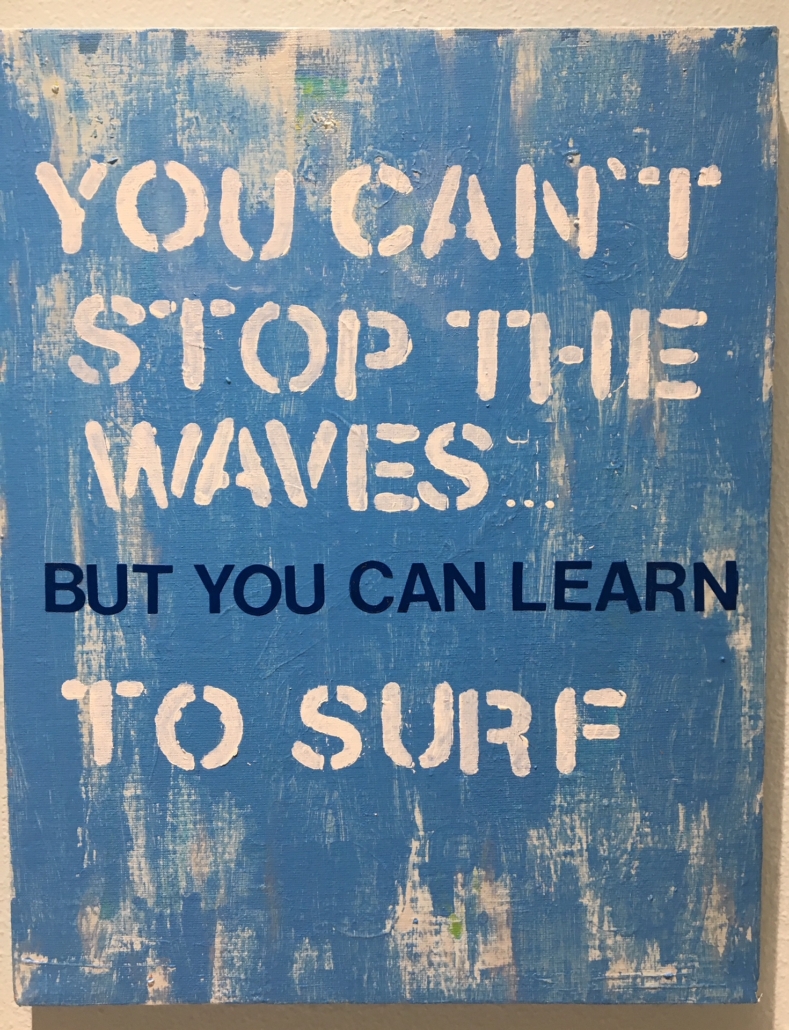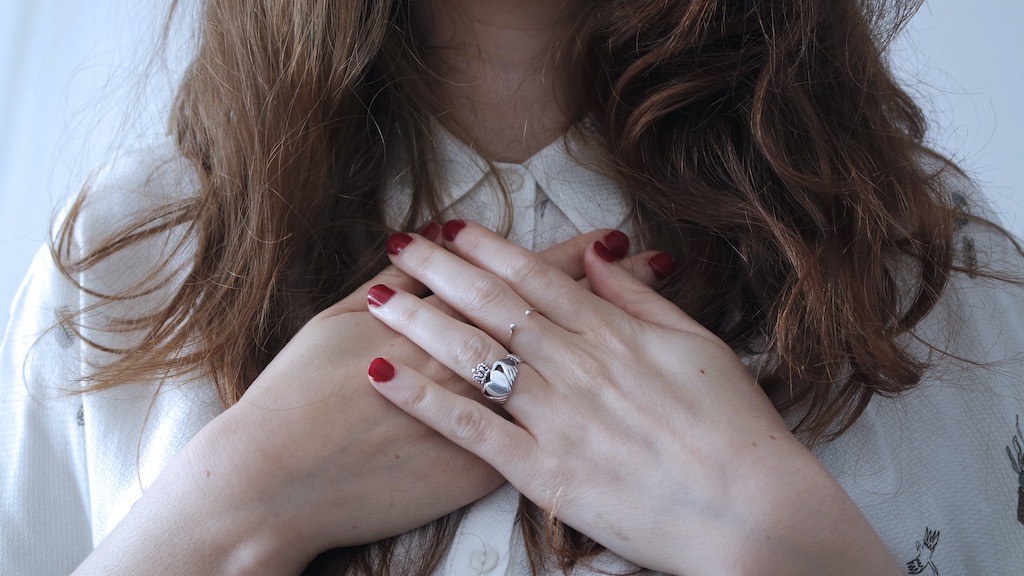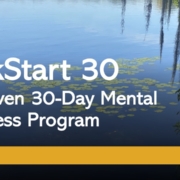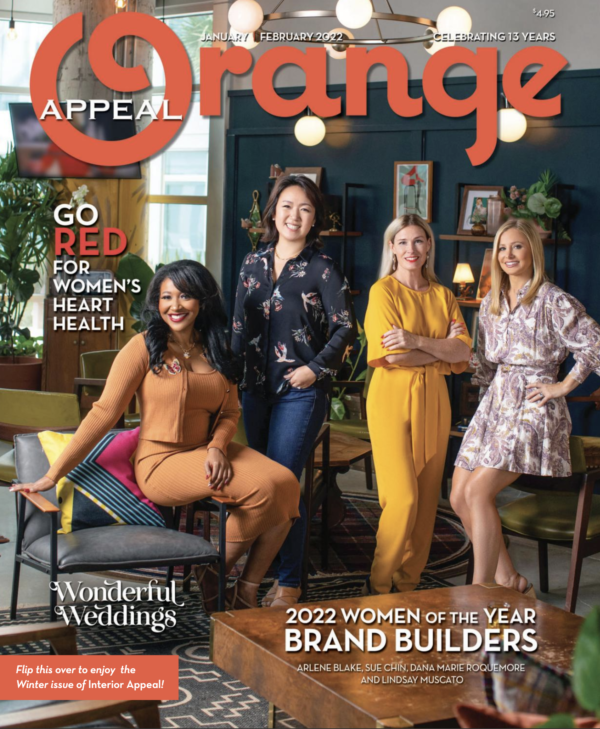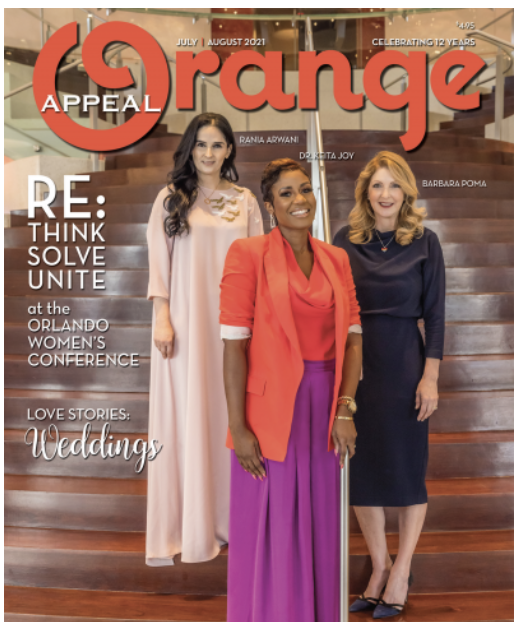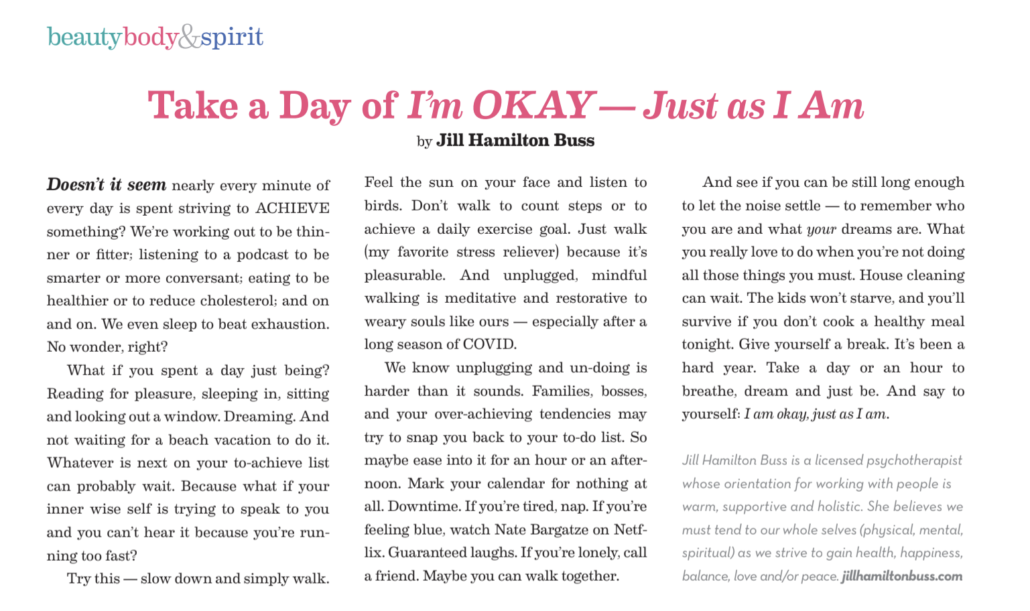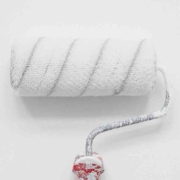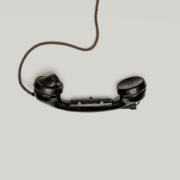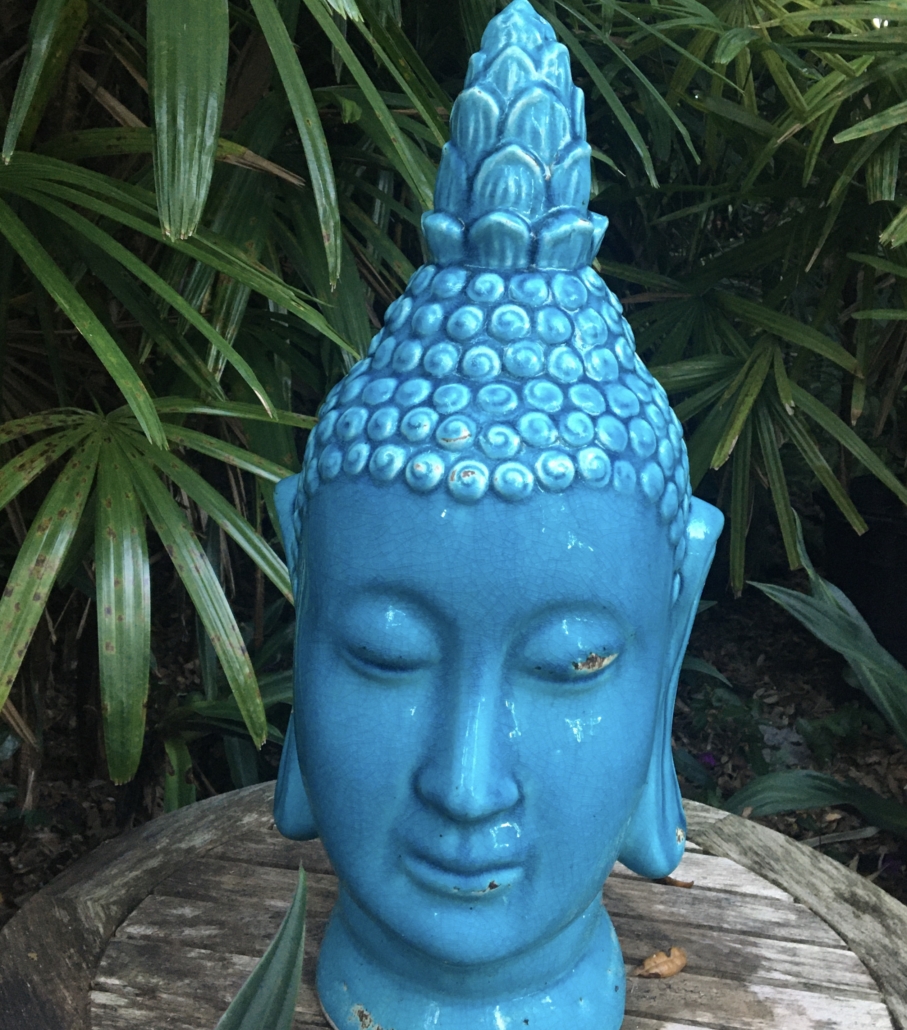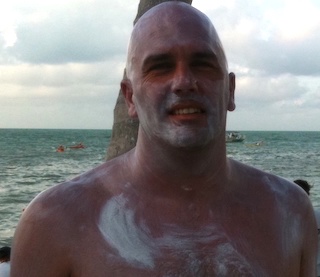
Spoiler Alert: This is not paint, it’s sunscreen from the time Spence swam 12 miles around Key West. I don’t have a paint picture but this gives you a pretty good idea…
Years ago we had started remodeling, little by little, our little block house, with a Florida pool in Winter Park. We had done a lot of the work ourselves and by “we”, I mean my handy husband, Spence.
I did help a little and to prove it, I have a small scar on the back of my right hand. I got it prying a nail out of a stud with the back of a claw hammer. When it released unexpectedly, with full force, the back of my hand was thrust onto a nail, a nail missing its head. It was like getting impaled on a fat straight pin, straight into the thin skin on the back of my boney hand, right where a big vein runs near the surface. Blood came gushing out as I yelped in pain. But really, what’s a remodel till someone goes to the emergency room?
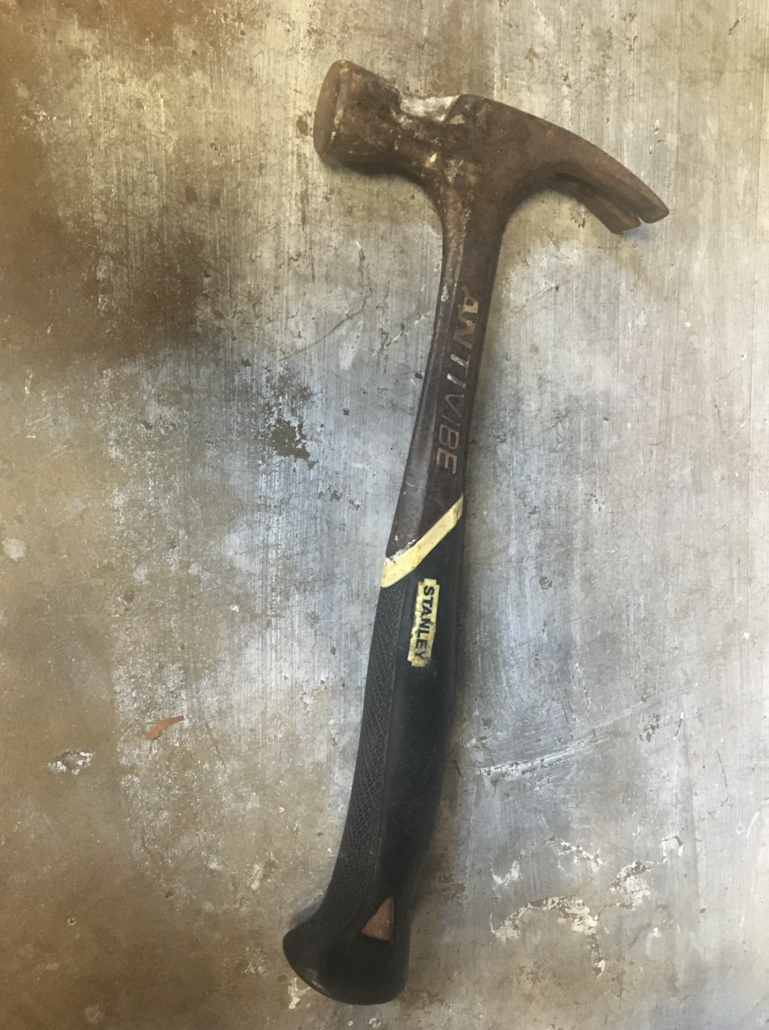
So, I “helped” a little but Spence really did most of the work. My job consisted primarily of picking paint colors, tile, fixtures, and “supervising” Spence, something he just loves for me to do.
Finally, as we were coming to the end of the multi-year project, the last room was almost complete. The trim just needed to be painted but days went by as Spence, who works long hours for a mechanical contractor, kept putting it off. Finally, I told him I’d just do it.
“Spence, I know you don’t think I’m a good painter, but I will take my time. I’ll wear my glasses and use that criss-cross method you showed me. You won’t have to re-do it,” I said.
He listened and protested, but I was resolute. Reluctantly he agreed.
So, I painted the trim and the world didn’t end. I actually did a pretty good job he admitted. The room looked great but I didn’t quite finish so he came home the next night and was going to take it the last mile. I left him to paint and headed to the gym. About an hour and a half later, I came home and Spence greeted me in the dark outside the garage door with a quick kiss and simply said:
“When you paint, make sure you put the lid on tightly when you finish.”
His inflection was calm and pleasant. He said nothing else and walked away. Spence is particular about his tools, about doing projects methodically (after reading all the directions, something I almost never, okay never, do) and about taking good care of materials like paint and paint brushes. So, I just thought I hadn’t capped the lid tightly and the paint would have dried out. No big deal.
So, cheerfully, I said, “Okay.”
I went in the house and fed our three cats their dinner. I remembered I wanted to ask Spence something, so I walked out to the garage, and it was then that I noticed the paint. All the paint. All over the floor. All over Spence.
“What happened?!” I said. And then it dawned on me. Oh my.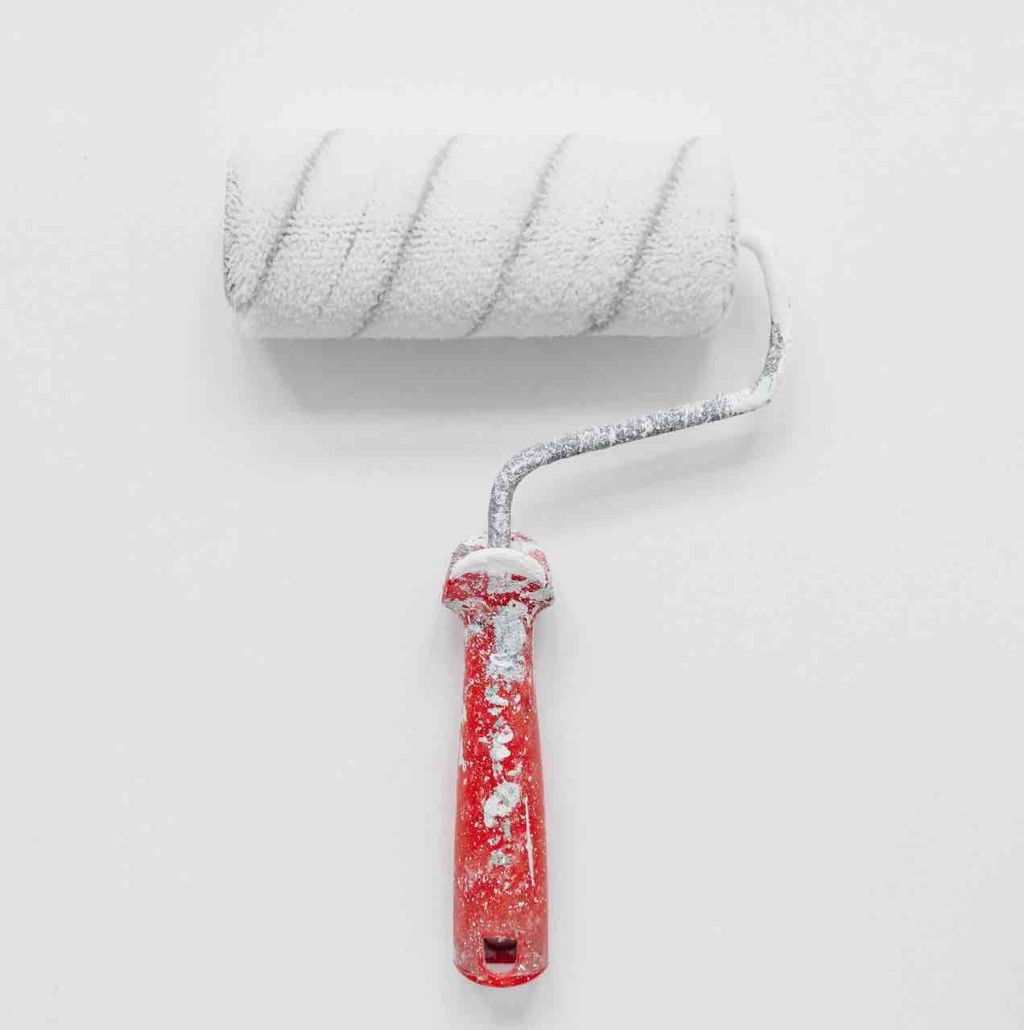
Spence was not wearing a shirt, but he was wearing the remnants of about half of a gallon of white paint, all over his chest and shorts. It was all over the garage floor, smears of white paint, that he had clearly tried to wipe up.
I couldn’t help it. I burst out laughing.
“I’m so sorry! How could you not have yelled at me? I would have been furious and had a few choice words for you if you…” I burst into inappropriate, nervous laughter again.
I had not shut the lid tightly so when he went to shake it up (Thanks, Taylor Swift), it went EVERYWHERE.
He just smiled that Zen, knowing smile, like, “you’re my little cross to bear.”
Calm. Grown up. Understated. Less is always more. That’s Spence. I won’t do that again. Okay, we both know I probably will.
Knowing your partner well, accepting and forgiving their shortcomings and being able to laugh at their (or our) frustrating traits are all important aspects for growing and maintaining successful, happy relationships. May yours have all of those things (especially the laughter!) – and more. Happy Valentine’s Day!
